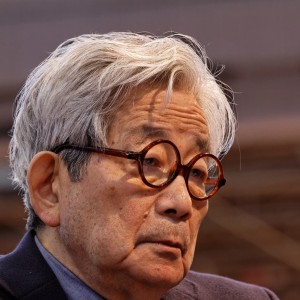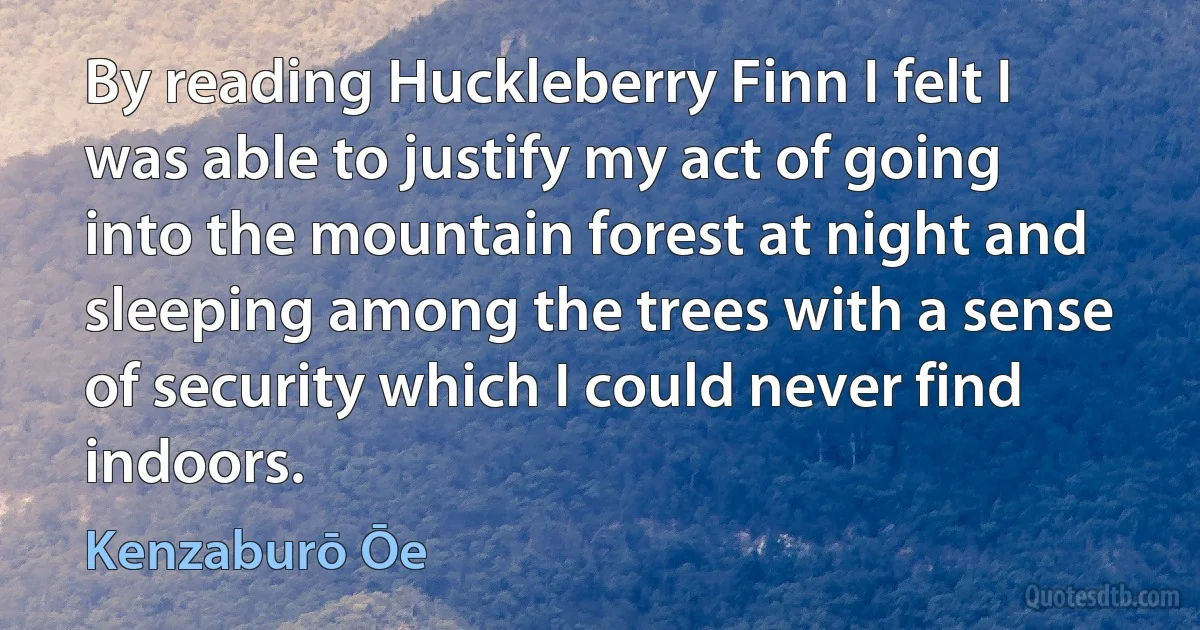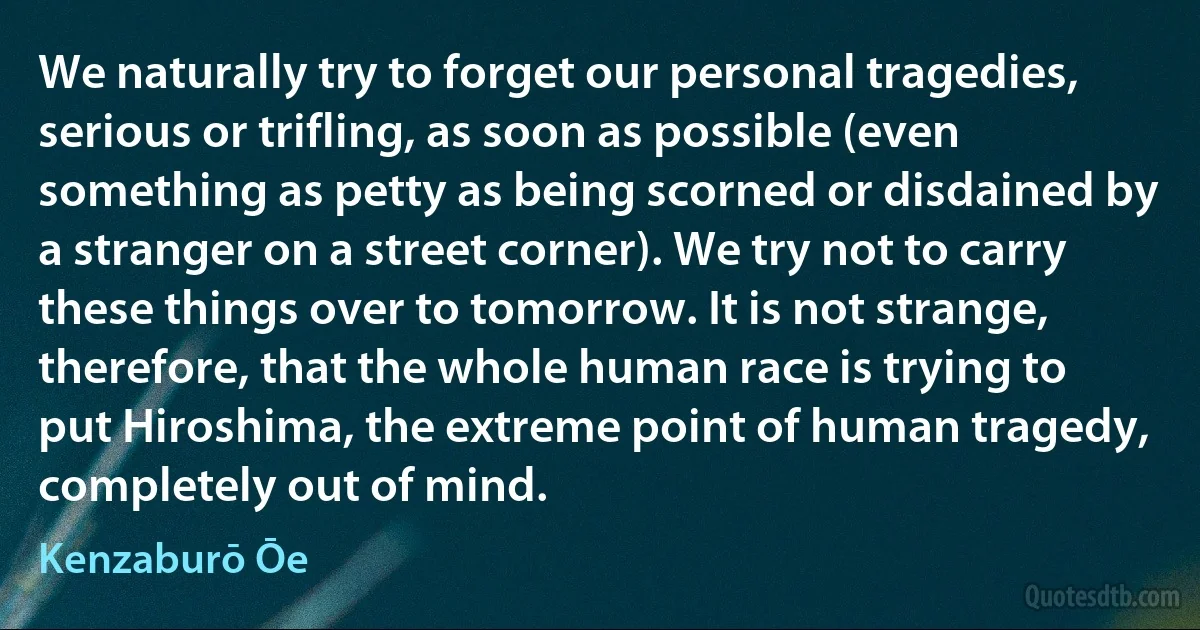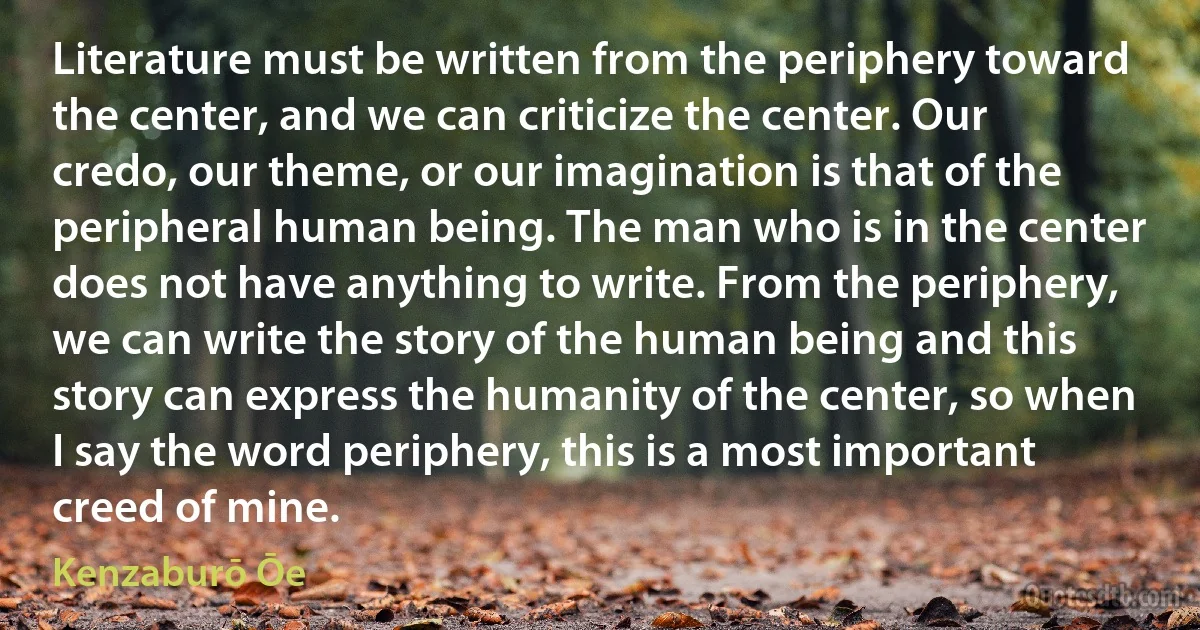Kenzaburō Ōe quotes - page 2
Kenzaburō Ōe was a renowned Japanese novelist and Nobel Prize laureate in Literature. His works often explore themes of personal trauma, social responsibility, and the complexities of postwar Japanese society. He became one of Japan’s most influential literary voices, both domestically and internationally. Here are 46 of his quotes:
One day Bird had approached his father with this question; he was six years old: Father, where was I a hundred years before I was born? Where will I be a hundred years after I die? Father, what will happen to me when I die? Without a word, his young father had punched him in the mouth, broke two of his teeth and bloodied his face, and Bird forgot the fear of death.

Kenzaburō Ōe
Every time you stand at a crossroads of life and death, you have two universes in front of you; one loses all relation to you because you die, the other maintains its relation to you because you survive in it. Just as you would take off your clothes, you abandon the universe in which you are still alive. In other words, various universes emerge around each of us the way tree limbs and leaves branch away from the trunk.

Kenzaburō Ōe
My mentally handicapped son Hikari was awakened by the voices of birds to the music of Bach and Mozart, eventually composing his own works. The little pieces that he first composed were full of fresh splendour and delight. They seemed like dew glittering on grass leaves. The word innocence is composed of in - "not" and nicer - "hurt", that is, "not to hurt". Hikari's music was in this sense a natural effusion of the composer's own innocence.

Kenzaburō Ōe
I have a habit to be reborn as a writer. So if I find myself in a crisis that I have never experienced, I can be born, or I can write something, by the power of the habit. Even a soldier or a farmer or a fisherman can be reborn by the power of the habit when he meets the greatest crisis of his life.

Kenzaburō Ōe
I was on a promotional tour in Great Britain, and I stopped in Wales. I was there for three days and I ran out of books to read. I went to a local bookstore and asked the person working there to recommend some books in English. He suggested a collection by a poet who was from the area but warned me that the book wasn't selling very well. The poet was R. S. Thomas, and I bought everything they had. As I read him, I realized that he was the most important poet I could be reading at that point in my life.

Kenzaburō Ōe
Under that title Kawabata talked about a unique kind of mysticism which is found not only in Japanese thought but also more widely Oriental thought. By 'unique' I mean here a tendency towards Zen Buddhism. Even as a twentieth-century writer Kawabata depicts his state of mind in terms of the poems written by medieval Zen monks. Most of these poems are concerned with the linguistic impossibility of telling truth. According to such poems words are confined within their closed shells. The readers can not expect that words will ever come out of these poems and get through to us. One can never understand or feel sympathetic towards these Zen poems except by giving oneself up and willingly penetrating into the closed shells of those words.

Kenzaburō Ōe
Kenzaburō Ōe

Photo:
Thesupermat,
CC BY-SA 3.0
Occupation: Japanese Writer
Born: January 31, 1935
Died: March 3, 2023
Quotes count: 46
Wikipedia: Kenzaburō Ōe













